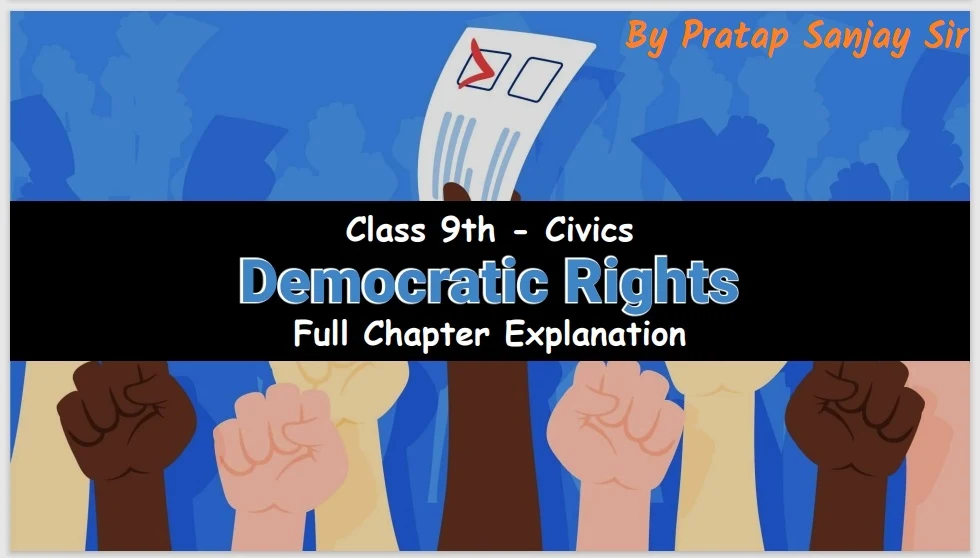Class 9th - Civics - Democratic Rights

Life without Rights
Let’s take 3 examples which will help you understand what it means to live in the absence of rights.
1) Guantanamo Bay
- The American government secretly imprisoned about 600 people, captured globally by US forces, in Guantanamo Bay, a region controlled by the American navy.
- The government accused them of being enemies of the United States and of involvement in the 9/11 attacks in New York City.
- Most prisoners’ families were not informed until the news spread through the media.
- The prisoners were not allowed to approach courts in their own countries.
2) Citizen’s Rights in Saudi Arabia
- A king rules Saudi Arabia; common citizens cannot elect their leader.
- The king appoints the legislature, executive, and judiciary, giving him control over dismissing judges.
- Citizens cannot form political parties, and media faces restrictions against publishing material disapproved by the Monarch.
- Non-Muslims must practice their religion privately, as public displays are not allowed.
- The testimony of one man is considered equal to that of two women; women face numerous public restrictions.
3) Ethnic Massacre in Kosovo
- Yugoslavia’s population was mostly Albanian, but the country’s majority was Serbs.
- Serbian leader Milosevic implemented hostile treatment and violence against Albanians.
- The aim was for Serbs to dominate and make ethnic minorities submit to their authority or leave the country.
Rights in a Democratic Nation
- People want to live free from fear and mistreatment, with mutual respect for each other's rights.
- A right is valid when it equally applies to all and is recognized by society.
- Rights are based on societal acceptance and evolve over time.
- Conditions for a valid claim as a "right":
- Reasonable and justifiable claims
- Recognized by society
- Aligned with legal standards
Rights of Indian Citizens
1) Right to Constitutional Remedies
- Citizens can approach the court if fundamental rights are denied.
2) Right to Equality
- Law applies equally to all, regardless of status; this is the foundation of democracy.
- No discrimination based on religion, sex, caste, birthplace, or race.
- Equal access to public places and opportunities in government employment.
3) Right to Freedom
- Freedom of speech, peaceful assembly, forming associations, movement, residence, and profession.
- Freedom must not infringe upon others’ rights.
4) Right Against Exploitation
- Protection from human trafficking, forced labor, and child labor in harmful occupations.
5) Right to Freedom of Religion
- Every citizen has the right to profess, practice, and propagate their religion.
- Secular state: No official religion, and practices harming others in the name of religion are not allowed.
6) Cultural and Educational Rights
- Minorities can preserve their language and culture.
- Cannot be denied admission based on religion or language in government-supported institutions.
- Minorities can establish and manage their educational institutions.




0 Comments